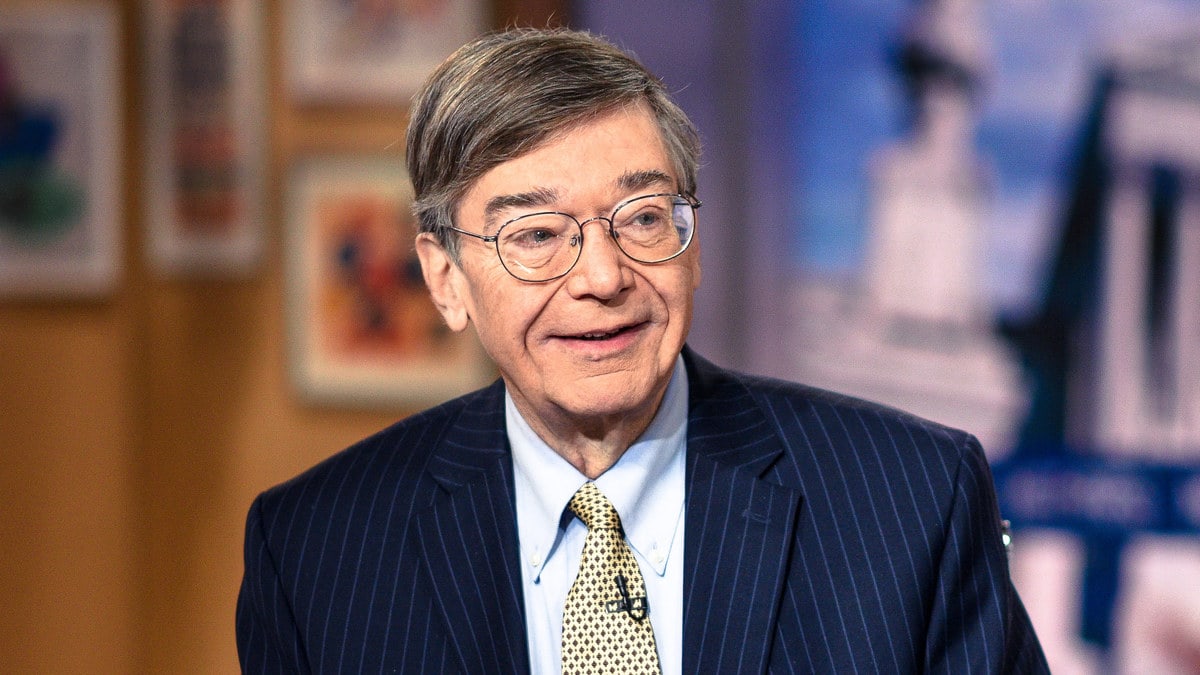When the Cook Political Report led its website in late December with the headline “The Majority is in Play,” those who follow politics closely felt the ground shift. It was the first significant assessment served up by one of Washington’s preeminent political handicappers that Democrats could gain control of the Senate in the November 2020 election.
Democrats need to pick up four Republican seats if they win the White House, which would put them at 51 seats (49 Democrats plus two Independents). If the president wins re-election, Democrats would need five pickups because the vice-president has a vote in the event of a tie.
That looked wildly out of reach until Republican-held seats in red states like Kansas, Georgia, and Iowa, where Joni Ernst once looked invincible, late last year began to exhibit weakened support and an opening for a Democrat, the right kind of Democrat.
But job No. 1, Cook says, is winning the White House. “If they’re losing the White House, they’re not going to be winning a majority in the Senate,” he told the Daily Beast in a telephone interview where he laid out the path for Democrats to a narrow majority that would unseat GOP leader Mitch McConnell from his preeminent perch as the lord and master of everything that happens in the upper chamber.
It’s not a slam dunk. Cook gives it one-in-three odds, which he notes is 67 percent against a Democratic takeover. Gaining control of the Senate is important because without it—even if Democrats win the White House—they would be back on what Democratic strategist James Carville calls the “same hamster wheel” while McConnell continues to play his obstructionist game.
The news this week that Secretary of State Mike Pompeo will not return home to Kansas and run to fill the seat of retiring Republican Senator Pat Roberts means that Democrats have a chance at that seat if Kris Kobach, a hardliner on immigration who lost a bid for governor in 2018, is the nominee.
Democratic state Senator Barbara Bollier raised more than $1 million in the first 24 hours after Pompeo told McConnell he would not run. It was a record sum for a Democrat in Kansas. Bollier was a Republican until last year, and says she is all about “common ground” and wants to be “a voice of reason” in a broken system.
Cook rates three races as tossups. Susan Collins of Maine is paying the price among women for supporting Brett Kavanaugh for the Supreme Court. “If she votes against removing Trump (in a potential Senate trial), that’s more fodder for suburban women to oppose her,” says Jessica Taylor, who just left NPR to monitor Senate races at the Cook Report.
The other two tossups are Cory Gardner of Colorado, who faces a strong challenge from popular former governor John Hickenlooper, and Martha McSally of Arizona, who was appointed to her seat and faces a strong challenge from former astronaut Mark Kelly.
“The Democrats could win them (the three tossups) without a wave, just a good night,” says Cook. To get to the next level, though, to win the fourth seat, things get tougher. He lists several possibilities. Some analysts think Thom Tillis in North Carolina is more vulnerable than Collins in Maine. Cook lists the Tillis seat as leaning Republican. Taylor, newly with the Cook Political Report, calls North Carolina “ground zero” in the presidential race and “the make or break state for which party controls the Senate.”
The DSCC (Democratic Senatorial Campaign Committee) is backing former state senator and Iraq and Afghanistan veteran Cal Cunningham in the March 3 primary. His principle competitor is Erica Smith, a three-term state senator, and their differences on issues mirror the debate in the presidential race.
Cunningham is a centrist Biden Democrat, while Smith, who is African-American, represents the more progressive wing of her party. She supports decriminalization of the border and allowing undocumented immigrants to buy into government funded health care, though she does not back Medicare for All. “People, not PACS” is her slogan.
Cook has both open Senate seats in Georgia on his radar, though he says no stellar candidate has yet emerged. Stacy Abrams, who narrowly lost a governor’s race in 2018, declined to make a run herself but is pushing the Democratic Party to view Georgia as a battleground state and invest the resources to produce a win.
Already in the field and running hard is Teresa Tomlinson, former mayor of Columbus, Georgia, and a one-time Republican who promises to bring “smart, pragmatic, effective government” to Washington. Then there is Jon Ossoff, whose race for a congressional seat in 2017 attracted national attention. He lost, but he’s back now working as an investigative documentary filmmaker and promising to root out corruption should he get to the Capitol.
Even if Democrat Doug Jones of Alabama loses, as Cook assumes he will, and Gary Peters, the only other endangered Democratic incumbent, doesn’t win reelection in Michigan, Democrats still have a path to the majority if they can muster the same level of turnout that won the House for Democrats in 2018. “Democrats won’t win one of these unless there’s a wave. It doesn’t have to be a tsunami, just the same magnitude as 2018,” says Cook.
Jones won in 2018 in heavily Republican Alabama with disgraced Judge Roy Moore as his opponent. Former Senator Jeff Sessions is now trying to reclaim the seat, and Jones will have an uphill climb against a credible opponent.
Democrats won the House in 2018 with a 6-to-7 point swing away from Republicans to Democrats. “If the same thing happens, they would have a wave,” says Cook.
Asked how impeachment and/or potential war with Iran might factor into the Senate races, Cook says, “There are going to be a hundred things between now and November—each one of which reminds me of the scene in Jurassic Park when they look in the rear view mirror and it says, ‘Objects may be closer than they appear.’”
The year is young and the chances of any event having an impact on Trump’s numbers seems remote since nothing has impacted him yet. “You could get a huge turnout, beating 1940 (62.4 percent) and 1960, (63.8 percent), but it’s coming from both sides,” says Cook. “It’s not how many votes you get, it’s where you get them from.”
For Democrats to take the Senate, there is a feasible path. A lot of things have to go right, beginning with a nominee at the top of the ticket who has broad appeal. Individual candidates matter less in this partisan era.
“Building a distinct identity from your party is increasingly difficult. That’s why Joe Donnelly, Heidi Heitkamp, and Claire McCaskill got sucked under (in 2018). If voters are mad at your party, they’re not going to make an exception for you,” says Cook. But if they’re mad at President Trump, that might be enough to sway some of these seats away from the GOP.

